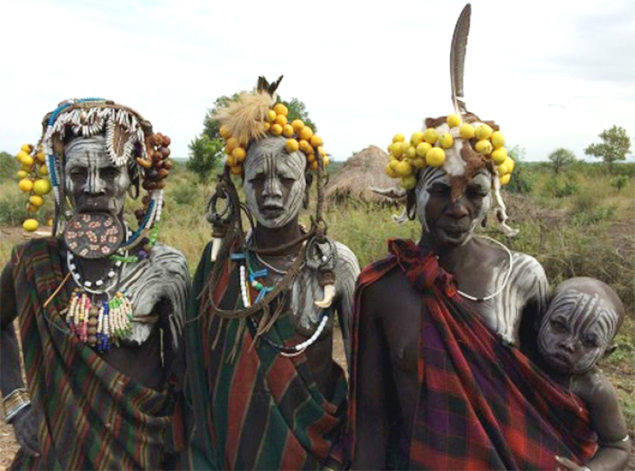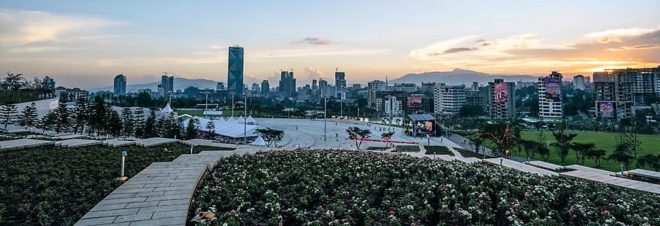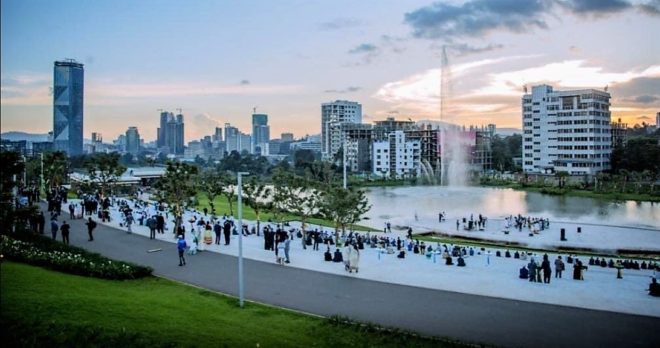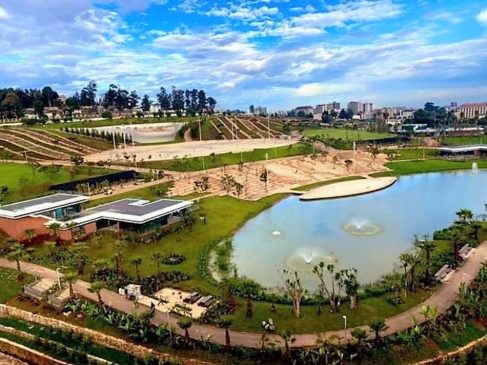When tourism becomes a double-edged sword

With their plated lips and ears and unique dressing the Mursi is one of the most famous tribes in Ethiopia.
I was so fortunate to be able to visit them a few days ago but what I experienced when visiting their village was far from what I expected, writes Mads Oddershede.
I find it extremely fascinating that some people are still able to live without electricity, running water and Internet connection. My stay here in Ethiopia has without a doubt opened my eyes to a lot of different cultures. Before I headed back home to Denmark, I really wanted to see the Mursi tribe as they were one of the reasons I came to Ethiopia in the first place.
Sadly, I did not have much time to spend in the Omo National Park, where the Mursi tribe live, I only got about half an hour to spend with them before I headed back to Arba Minch. On the way to the village I was lucky enough to see some wild baboons and dik-diks, a small antelope that lives in Eastern and Southern Africa, plus the amazing view of the National Park. My expectations for the meeting with the Mursi people were therefore even higher than when I left my hotel in the morning.
The village is situated well into the national park and it takes around 45 minutes of driving to reach the village. As we got closer to the village we saw some of the people standing alongside the road waving and looking curiously at us. Some of them had painted their bodies in different colours while others were wearing clothes made of cow skin and carrying wooden sticks. Suddenly we seemed to have jumped into a whole different age, where things such as electricity, mobile phones, computers and Internet do not exist.
When we arrived at the village we were met by a bunch of people who initially had a few words with my guide. He quickly explains why we are here and, after paying an entrance fee of 100 birr, we are allowed to walk around in the village. The tour guide and I are able to have a quick walk by ourselves for a few minutes where we got to see some huts and a nearby bonfire where a woman is roasting corn. But then the peace and relaxation stop. Now all the women, kids and some of the young men rush towards us. As soon as they spot me taking pictures with my phone they see their chance to earn some money. Every person of the Mursi tribe demands 5 birr for a photo. It is not much and of course they need the money. They know that I only have a certain amount of money with me and so the fight to get in front of my camera lens gets pretty intense. Obviously I want to take some pictures of these very interesting and unique people, but before I arrived I thought I could get some pictures of the people in everyday situations that could maintain the authenticity in the photos. But I quickly found out that my expectations were not feasible. The struggle to get me to take pictures intensifies and some people grab my arm and pull my shirt to try and get my attention. I just pick people randomly, but as soon as I am done taking pictures of selected people, others try to get a picture taken. The whole situation is very confusing, resulting in almost 20 minutes of chaos. Soon another group of tourists arrive in the village, which gives me a bit of breathing space. But then I look at the clock and realize that it is time to go.
When driving back from the village I feel a weird disappointment. The people looked amazing with their exceptional accessories and body paint but their behaviour really surprised me. I did not imagine the people would be so detached and I really thought that I could get to know their way of living a bit better. Some other tourists that I met later that day told me that they were so lucky to see a stick fight, thagine, as well as the ritual where men whip the women, as a symbol of the women’s devotion to their husbands. I must admit that I felt a bit jealous by hearing them talk of their trip. Their experience with the Mursi tribe definitely seemed a lot better than my own.
The whole experience made me think. As tourists we enjoy seeing something different from our own culture, but at some point the tourism can become a problem. People from all around the world have visited the Mursi village for some years, but I think we now can see the effect of it. The people and their culture are clearly affected by all the ferenjis disturbing their daily rhythm. It now seems that the Mursis have changed their everyday life and adapted to the tourists coming to their village, but at the same time this means that they have to give up some of their own values. Increasingly tourism is a growing industry in Ethiopia and if more people visit the tribes in the future it is likely to affect their culture and lives even more. Of course the tribes make money when tourists come to take pictures, but the double-edged sword of tourism slowly cuts some deep wounds. Someday the tribes might not have anything to show the tourists if they keep trying to adapt to them. It is difficult to find a solution to the growing problem, but maybe we just need to accept the sad fact that unique cultures like the Mursi tribe will disappear someday.
Soure: The Reporter



